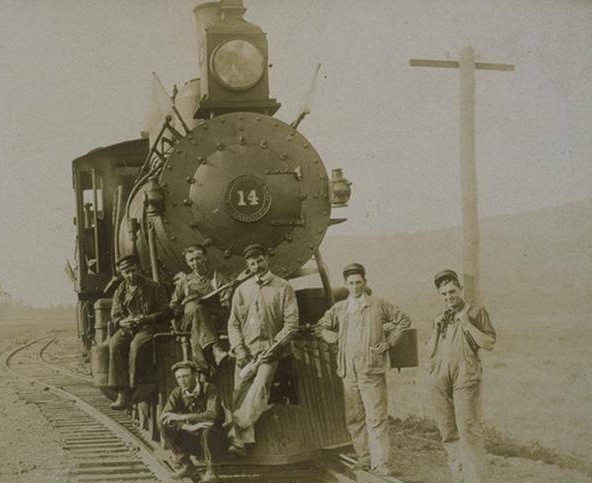
Detail of Locomotive number 14 with workers from the Central New England Railway Co., 1906 – University of Connecticut Libraries, Thomas J. Dodd Research Center and Connecticut History Illustrated
The Industrial United States (1870–1900)
The late 19th century was a period characterized by innovation, racial tension, and labor unrest in America. A country characterized since its birth by its constant expansion into the wilderness, America began looking inward after acknowledging the demise of the American frontier. The explosive growth of railroads, oil, steel, and other industries facilitated by men such as Collis Huntington and J. P. Morgan led to growing disparities in wealth that soon caught the attention of “muckraker” journalists such as Ida Tarbell. Communications expanded with the New Haven opening of the country’s first telephone exchange in 1878, while Connecticut writers and reformers such as Mark Twain and Harriet Beecher Stowe sought to entertain while also informing the American public about the social injustices of the Gilded Age.




